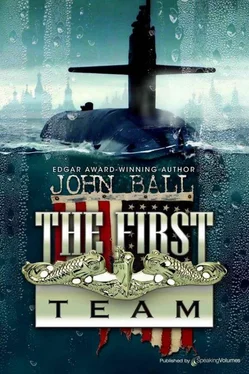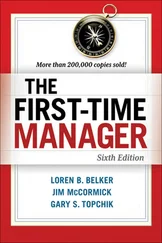Джон Болл - The First Team
Здесь есть возможность читать онлайн «Джон Болл - The First Team» весь текст электронной книги совершенно бесплатно (целиком полную версию без сокращений). В некоторых случаях можно слушать аудио, скачать через торрент в формате fb2 и присутствует краткое содержание. Год выпуска: 2013, Жанр: Триллер, на английском языке. Описание произведения, (предисловие) а так же отзывы посетителей доступны на портале библиотеки ЛибКат.
- Название:The First Team
- Автор:
- Жанр:
- Год:2013
- ISBN:нет данных
- Рейтинг книги:5 / 5. Голосов: 1
-
Избранное:Добавить в избранное
- Отзывы:
-
Ваша оценка:
- 100
- 1
- 2
- 3
- 4
- 5
The First Team: краткое содержание, описание и аннотация
Предлагаем к чтению аннотацию, описание, краткое содержание или предисловие (зависит от того, что написал сам автор книги «The First Team»). Если вы не нашли необходимую информацию о книге — напишите в комментариях, мы постараемся отыскать её.
Student protesters are being slaughtered in the Midwest.
The Jewish pogroms have begun.
You are now living in Soviet — occupied America!
One nuclear submarine and a handful of determined patriots against the combined might of Russia and Soviet-occupied America… The Most Explosive and Gripping “What If” Novel of Our Time!
First published January 1971
The First Team — читать онлайн бесплатно полную книгу (весь текст) целиком
Ниже представлен текст книги, разбитый по страницам. Система сохранения места последней прочитанной страницы, позволяет с удобством читать онлайн бесплатно книгу «The First Team», без необходимости каждый раз заново искать на чём Вы остановились. Поставьте закладку, и сможете в любой момент перейти на страницу, на которой закончили чтение.
Интервал:
Закладка:
“Yes.” The single word was tight and strained, forced out by a man holding himself under severe restraint. Hewlitt scooped up a phone. “Medical, quick.” Seconds later he had his connection. “This is Hewlitt in the Oval Office. Mr. Zalinsky has been taken acutely ill; send up the doctor immediately.” He hung up and turning once more to Zalinsky began to help him off with his coat.
The phone rang. He picked it up and spoke his name. “The doctor isn’t here, Mr. Hewlitt,” he was told. “The nurse is on her way.”
“That may not be enough; get an ambulance as fast as you can.”
“Yes, sir, right away.”
It was a struggle to get Zalinsky out of his coat; his body was solid and surprisingly heavy. The man himself tried to help, but he was in pain and at the point where he barely had control of his body. Hewlitt managed to free him, using main strength at one point to pull the collar down from his shoulders. As he was finishing the hasty operation the door to the office swung open and two people came in; the middle-aged nurse Hewlitt had seen before and Major Barlov, the head of White House security under the new administration. Hewlitt spoke to him without ceremony. “Help me,” he ordered. “I want to lay him out on the floor.”
The major cut him with one quick suspicious glance, then he called out through the door. That done he came quickly to give Hewlitt a hand; between them they lifted Zalinsky out of his chair and stretched him on his back in the middle of the carpet. As the nurse bent over, Hewlitt loosened Zalinsky’s tie and took off his heavy shoes.
The nurse was on her knees, a tray of limited medical supplies beside her. Zalinsky, fully conscious, ignored her; he closed his arms across his abdomen and began to roll in short jerks from side to side.
“I’m not sure, but I think he could be passing a gallstone,” the nurse said. “That’s terribly painful. About the only thing we can do is to take him to the hospital or else put him into a tub of very hot water. That gives relief sometimes.”
Hewlitt wiped an arm across his forehead. “I’ve called an ambulance. Where the hell is the doctor?”
“He’s down at the clinic, Mr. Hewlitt; he’s helping out because of the doctor shortage. We haven’t needed him here for a long time, not since…”
“Well, we need him now! Did you send for him?”
“No, I didn’t know it was this bad. I brought antiacids — things like that.”
Minutes later one of the enemy guards appeared at the door and spoke rapidly to Barlov. “Two ambulance men are here, shall we search them?”
Barlov beckoned with his arm. “No, there is not time; bring them in at once.”
Hewlitt listened, then spoke to the man on the floor. “Can you hear me, Mr. Zalinsky?”
“Yes.” The same word again, the same filter of severe pain.
“Hang on; the ambulance is here. We’ll have you at the hospital very soon.”
Zalinsky held his eyes tightly shut and said nothing. Hewlitt helped as the two medical attendants lifted Zalinsky onto their folding cart and began to wheel him out of the office. “You stay,” Barlov directed.
“No,” Hewlitt answered him. “He may need an interpreter — and I can describe his symptoms.”
“I will come too.”
“All right.”
They were in the corridor by that time. The ambulance attendants were efficient; within three minutes Zalinsky had been loaded through the back into their vehicle and transferred to the built-in bed. Hewlitt sat down on a jump seat with Barlov beside him. “Walter Reed as fast as you can,” he ordered.
The ambulance took off with the voice of the siren climbing and the red lights on top flashing their message of urgency. In the right front seat one of the attendants picked up a microphone and radioed ahead. On the narrow bed Zalinsky continued to thresh his body, twisting and turning in a strange, unreal silence as though his fierce pride would not allow him to utter a sound for fear that he might cry out. “Can you help him?” Hewlitt asked the attendant in back.
The man shook his head. “Not without a doctor’s order, unless it’s to save his life. We’ll be there pretty quick; he’ll be all right after that.”
Sixteen minutes later the ambulance turned sharply into the grounds of the Army medical facility. White-coated personnel were waiting outside despite the chill temperature; as the ambulance pulled up they rabidly removed the patient and wheeled him inside into a receiving room. There, waiting, was an obviously senior physician who had all his preparation made. “What medication has he been given?” he asked as Zalinsky was expertly transferred to the receiving table.
“Nothing,” Hewlitt answered. “I came into his office about a half hour ago and found him doubled up in pain. He hasn’t said anything, but it seems to be abdominal — the nurse guessed that he might be passing a gallstone.”
The doctor turned to his patient and began an examination. It took him less than a minute, then he picked up a syringe. “That or possibly a kidney stone,” he said as he loaded the needle. “I’m giving him some Demerol — that will give him relief.”
“I must know what it is,” Barlov said. He had come in the room unobserved.
“It’s the right thing,” Hewlitt answered him. The doctor gave him a grateful glance as he rolled Zalinsky over, pulled down the band of his trousers, and exposed the proper quadrant of his buttocks. Zalinsky winced slightly as the needle went home, but he still made no sound. When the injection had been completed and Zalinsky was once more lying on his back Hewlitt spoke to him. “This is Walter Reed Hospital,” he said. “It is one of the best medical facilities in the country. The shot you have been given will ease your pain quickly. Do you need anything?”
“Remain,” Zalinsky said.
Hewlitt did, Barlov beside him, and waited. Presently he could discern a lessening of the tension in Zalinsky’s body. Gradually, almost visibly, the pain ebbed out of him. The lines in his face relaxed and the almost fierce grip that he had been holding on himself quietly evaporated. As it did the physician unbuttoned Zalinsky’s shirt and began to probe his upper abdomen. Then he released his trousers and continued testing with his fingers. When he had finished he turned to two of the white-coated attendants who had met the ambulance on arrival. “Take him in and get him ready for surgery,” he ordered. Then he turned to Hewlitt and spoke to him, ignoring Barlov.
“I believe that your nurse was right,” he said. “We can make some quick tests, but all the indications are that he is passing a gallstone. In his general condition I believe that his gallbladder should come out, but I won’t give a final opinion until the tests are run.”
“How serious is it?” Hewlitt asked. “And do you know who he is?”
The doctor nodded. “I know. Not too serious, I’d say; we do them here every day. He’s heavily overweight, but that is a complication we’ve met before.”
Major Barlov stepped forward. “I am not doctor,” he said. “Our doctors are the best, but we have not one of our own here.”
“I believe that you can place your confidence in us,” the physician said. His voice was dry and factual, indicating that he had dealt with the enemy before.
Barlov continued with the same disregard of personal feelings that had characterized him since his arrival at the White House. “It is necessary that the one and best surgeon be assigned,” he said. “The best and the best only.”
The Army doctor spread his fingers and pressed his palms against the tabletop on which his patient lay. “A very good man will attend to your countryman,” he said. “I may even do it myself.
Читать дальшеИнтервал:
Закладка:
Похожие книги на «The First Team»
Представляем Вашему вниманию похожие книги на «The First Team» списком для выбора. Мы отобрали схожую по названию и смыслу литературу в надежде предоставить читателям больше вариантов отыскать новые, интересные, ещё непрочитанные произведения.
Обсуждение, отзывы о книге «The First Team» и просто собственные мнения читателей. Оставьте ваши комментарии, напишите, что Вы думаете о произведении, его смысле или главных героях. Укажите что конкретно понравилось, а что нет, и почему Вы так считаете.












